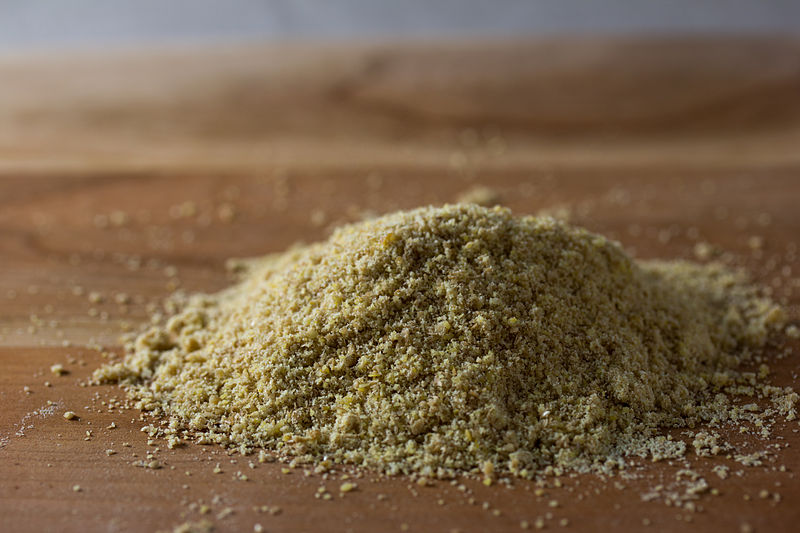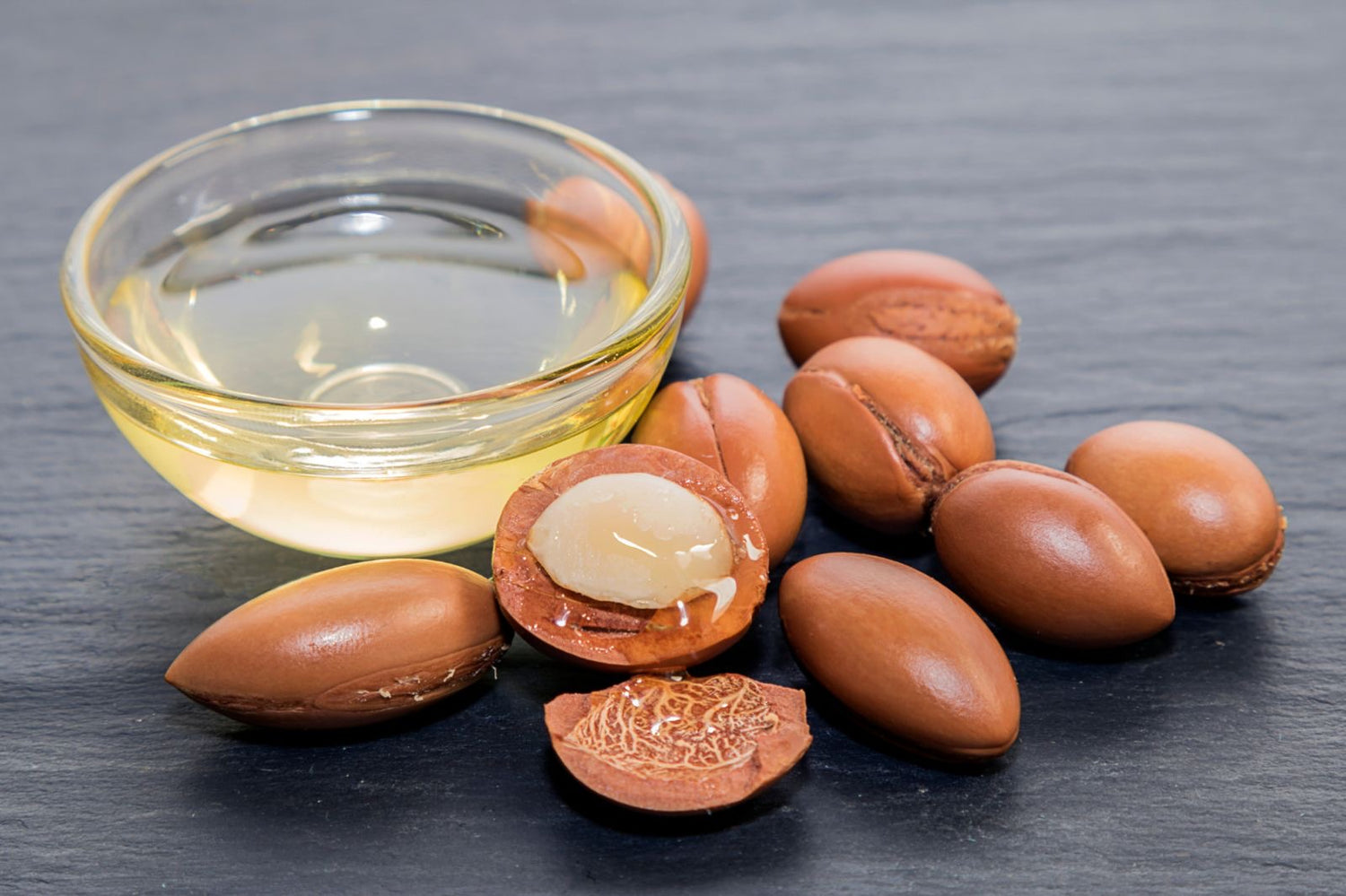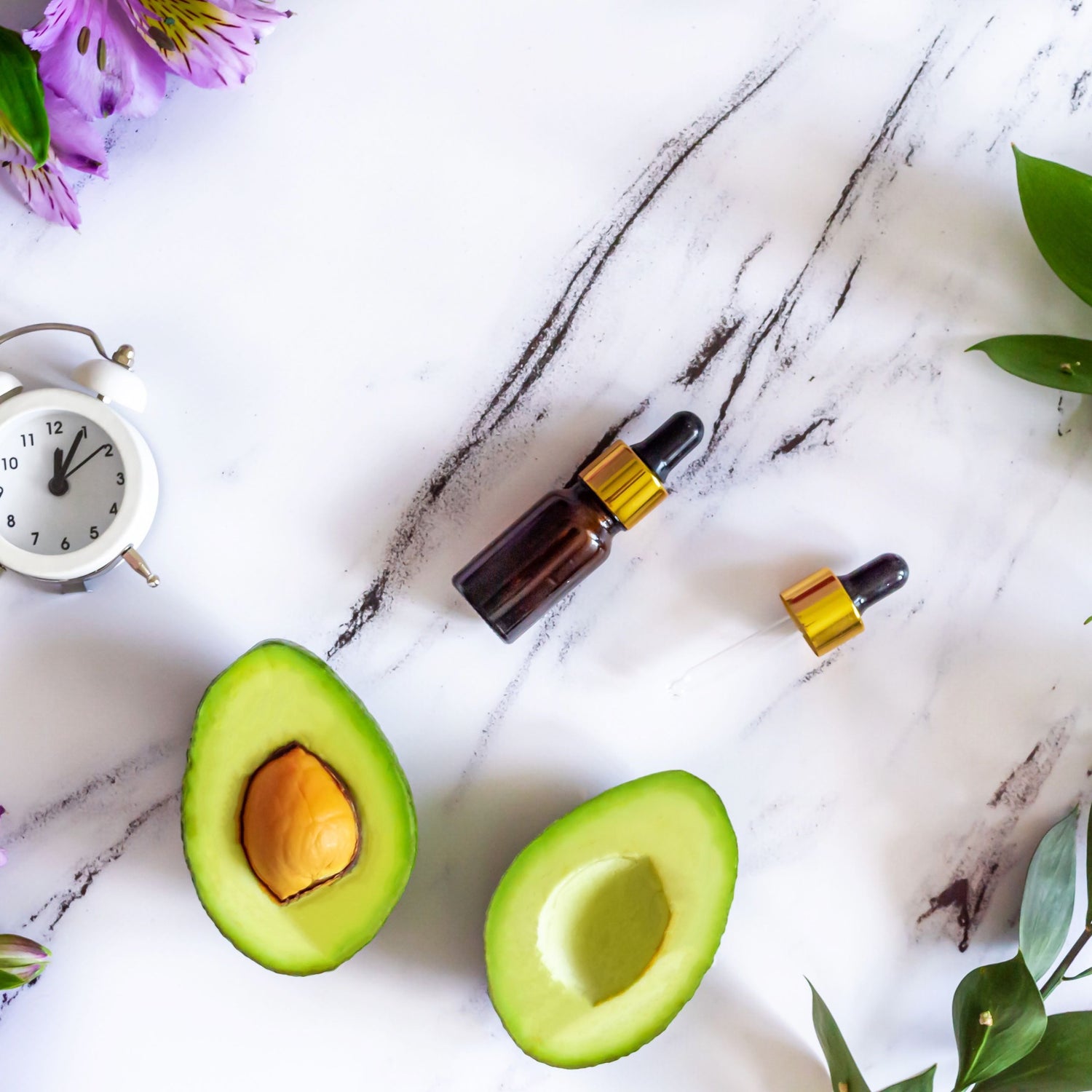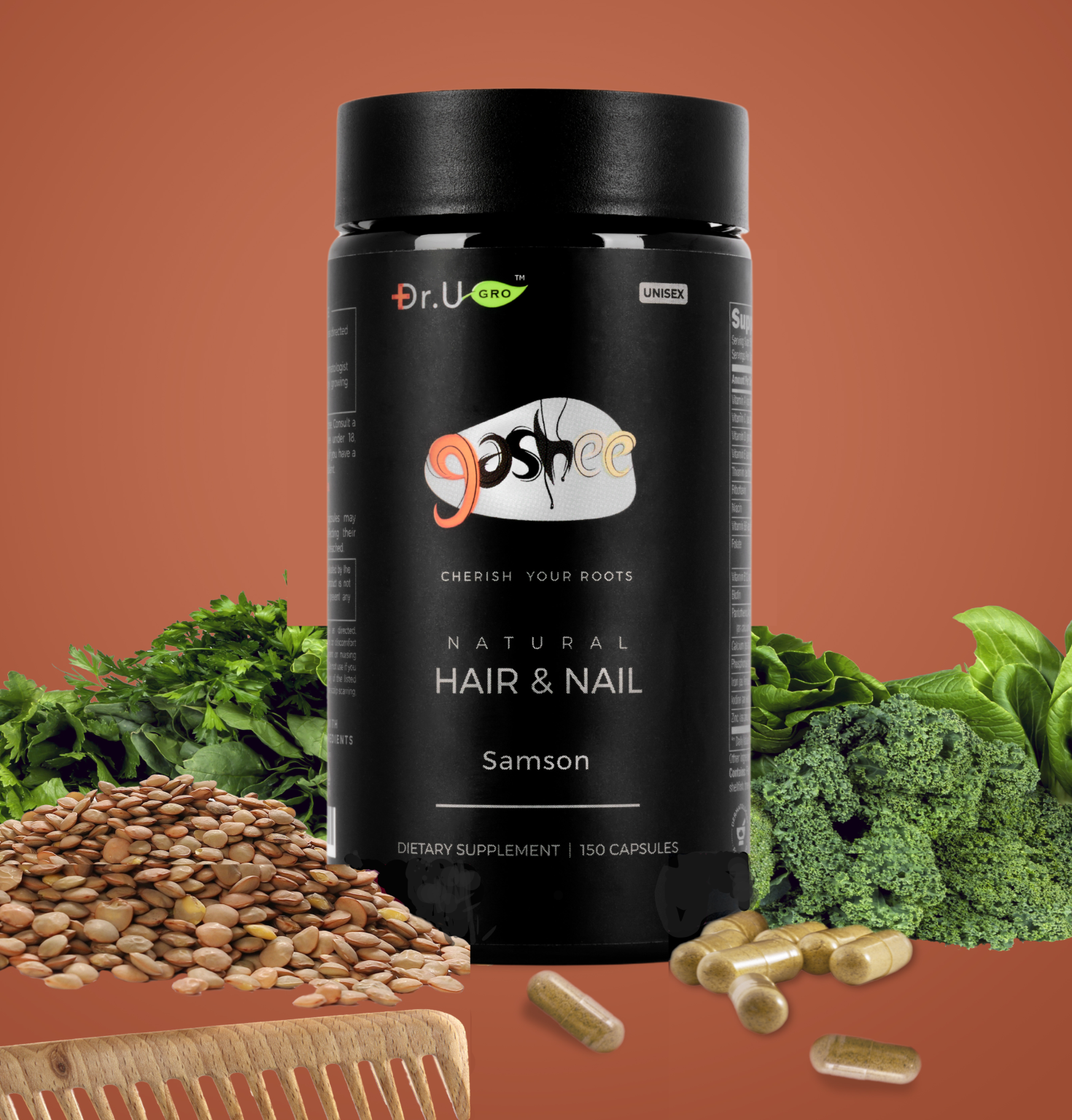What is Flaxseed Oil?
Flaxseed oil, typically colorless or pale yellow, is obtained by drying ripened seeds of the flax plant. It is also sometimes called linseed oil. Today, flaxseed oil has its reputation as a highly beneficial health food and supplement. It is often consumed in cold soups, smoothies, protein shakes, cereals, and salads. Experts endorse its effects on weight loss, cellulite, eczema, heart health, and even cancer. It has been cultivated for healing purposes since prehistoric times as far back as the Neolithic era (10,000 BC). During the 8th century, King Charlamagne, founder of the Holy Roman Empire, passed laws mandating his subjects to take flaxseed oil. In recent years, researchers have started to learn about flaxseed oil's potential for hair loss, among other health benefits.
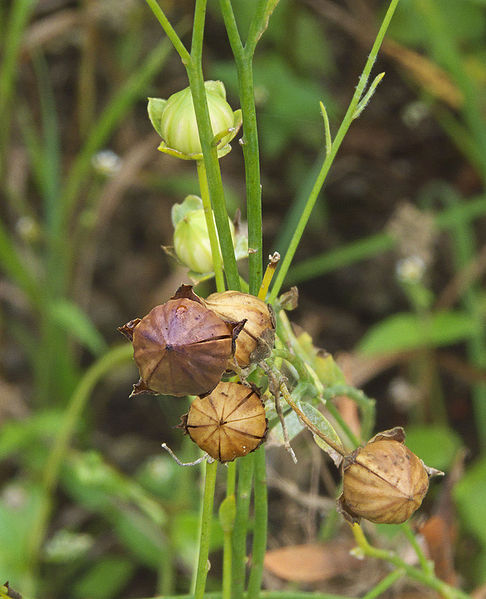
Scientists Identify the Compounds of Flaxseed Oil Benefits for Hair Health
Two scientists, Banerjee Kaushita and Padma Thiagarajan, co-authored a review called "Linum Ugitatissimum L. (Flax) plant and its seed oil a review," discussing the significance of plant extracts, like flaxseed oil for hair as a natural alternative to synthetic drugs (1). In this publication, they cite a wide range of research sources, discussing specific compounds found within the flaxseed extract responsible for its ability to improve various aspects of health. The benefits of flaxseed oil for hair follicles may be due to the presence of phytochemicals like phenols, flavonoids, and lignins. Phenols are found in plants and often function as active (therapeutic) agents. They can control enzyme dynamics and biochemical processes by binding to cellular receptors. Additionally, they serve protective roles. Flavonoids are phytonutrients and a subset of phenols. They are responsible for producing the rich colors of fruits and vegetables. Lignans are phytoestrogen, phenolic compounds which exert many estrogen-like properties. Phenols, flavonoids, and lignans are all powerful anti-oxidants. They are also known to promote the healthy growth of cells (Shahzad, 2006). Furthermore, these three constituents are part of a larger group of compounds called Polypropanoids, found richly in flaxseed oil. Polypropanoids function as anti-oxidants. They also fight bacteria, fungi, and viruses. In addition to phenols, flavonoids, and lignans, Polypropanoids also include tannins and phenolic acids. Flaxseed oil is an abundant source of the essential fatty acids omega-3 and omega-6 for hair follicles, which the body cannot produce. They help protect cell membranes by causing them to be semi-permeable to prevent toxins from entering the cell. (Harper, 2006) . Omega-3 itself is documented to have strong anti-inflammatory properties (Fitzpatrick, 2007; Madhusudhan, 2009)
Flaxseed Oil for Hair Follicle Health As a DHT Inhibitor
Genetic pattern baldness is primarily attributed to testosterone's breakdown into DHT due to an enzyme known as 5a-reductase. Drugs like Finasteride (also known as Propecia) work by blocking this enzyme to lower DHT levels in the patient’s system. Individuals who suffer from pattern baldness (androgenic alopecia) have protein receptors on their hair follicles weaker and more sensitive to DHT. This compound binds to these receptors, initiating a cascade of reactions, causing the follicle to miniaturize and lose the ability to produce new hair strands over time. Since hair follicles are very tiny structures, it is often difficult to study how they are affected by DHT inhibition. A far easier approach is to test potential treatment compounds on a condition known as benign prostatic hyperplasia (BPH), resulting from high DHT levels in the bloodstream. In a study by Said Mahmoud et al., this was done, called Flaxseed suppressed prostatic epithelial proliferation in a rat model of benign prostatic hyperplasia (3). BPH usually occurs in older men. It manifests as an enlargement of the prostate gland through the growth of fibromuscular and epithelial structures. 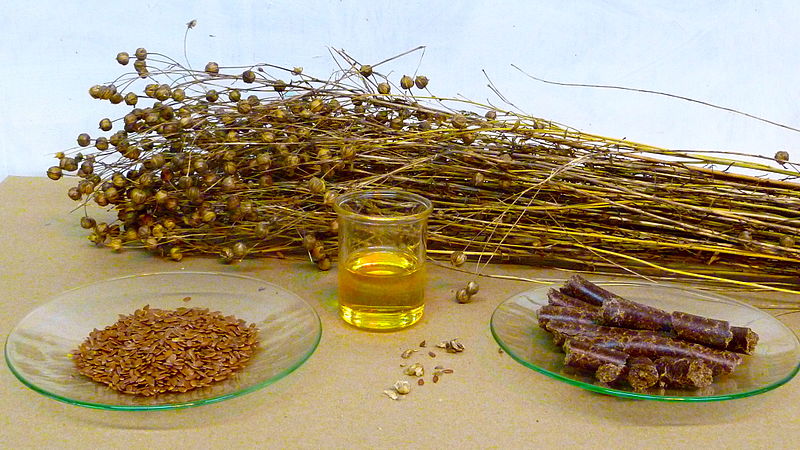
This study wanted to see if flaxseed could prevent the prostate gland's enlargement in male rats. They used 40 of these animal subjects and divided them into five groups.
- Control group who received no treatment
- Treatment group who received doses of testosterone propionate (TP) to induce prostate enlargement.
- Rats treated with TP and given a diet consisting of 5% milled flaxseed
- Rats treated with TP and given a diet consisting of 20% filled flaxseed
- Rats treated with TP and given a diet with 20ppm Finasteride
Administering testosterone propionate (TP) to induce benign prostatic hyperplasia resulted in the following types of increases :
- weight of the prostatic lobes
- serum testosterone (i.e., a precursor to DHT)
- testosterone to estradiol ratio
- gene expression of VEGF (vascular endothelial growth factor) in the prostate region
- RNA synthesis within the prostate cells
- epithelial cell division
The rats with induced BPH who were treated with flaxseed showed a reduction in these areas.
- VEGF
- Cell proliferation
- RNA to DNA ratio
They also displayed a significant increase in serum testosterone and testosterone to estradiol ratio at much larger concentration levels than the rats who only received the testosterone propionate (TP). These findings support flaxseed as a comparable 5a-reductase inhibitor to finasteride. The researchers also believe that the flaxseed diet suppressed VEGF formation and the reproduction of prostate cells. This overall study was similar to another experiment on Wistar male rats, using curcumin to treat benign prostatic hyperplasia and comparing the effects to Finasteride(2). These findings may be generalized to flaxseed oil for hair. However, further studies are first needed to study the DHT inhibiting effects of flaxseed oil within the context of human hair follicles.
Researchers Observe Flaxseed Oil for Hair Growth in Rabbits
While flaxseed oil may treat BPH in rats by lowering DHT, can it also work on the follicles to help hair grow? One clinical trial study was performed on New Zealand rabbits(4). The researchers divided the animals into control and experimental groups. The control rabbits were fed their usual diet. The test group was given a diet that included flax seeds. Every week, the researchers weighed the rabbits. They also monitored the length and quality of hair on a designated region on the backs of these animals. By the third month, the team noted a rather significant increase in hair length by over 26%. Also, they observed a slight thickening of the hair diameter by over 7%. The researchers are not clear how flaxseed worked to produce these effects. Their publication discussed an interest in future studies on specific dosages and frequencies of feedings within the hair growth's seasonal changes in these animal subjects.
Does Flaxseed Oil for Hair Loss Actually Work?
So far, the research literature noted above provides a generally positive picture that supports the potential of flaxseed for hair health. The publications can fight inflammation, neutralize free radicals, block DHT, and even promote hair growth in rabbits. However, further studies on human subjects would be needed to form more specific conclusions on its effectiveness for conditions like androgenic alopecia or inflammation-induced hair loss.
Is Flaxseed Oil Safe?
Although flaxseed oil is associated with a wide range of positive health effects for our follicular well-being and other areas needed by our bodies, it may still incur unwanted consequences. At the moment, due to a lack of research, there are no standard dosage guidelines. Consult with your doctor to ask about safe amounts to take and any time limits that may apply to you.
Possible Side Effects
At the moment, there are a considerable number of adverse effects that may arise from taking flaxseed oil. These include:
- allergies (with symptoms such as redness, itching, hives, swelling, nausea, vomiting, a tight throat, breath shortness, vomiting, nausea)
- growth of prostate cancer tumors
- diarrhea
- constipation
- hormone changes in pregnant or lactating women
- bleeding due to complications with medications or pre-existing health conditions
- blood sugar reduction
- lowered blood pressure
- Contraindications
In addition to pregnant and lactating women, other individuals who should not take flaxseed oil include:
- children due to a lack of pediatric research on the safety of flaxseed oil patients on blood clotting medications
- those who have a medical history of bleeding disorders people undergoing surgery (i.e., no flaxseed oil two weeks before and during the beginning of recovery)
Safety Profile
The Environmental Working Group gives flaxseed oil a (green) rating of 1 (out of 10) regarding its toxic health risk potential. In other words, it is considered generally safe. Flaxseed oil is not associated with cancer allergies, immunotoxicity reproductive toxicity child developmental risks. However, again, despite this rating, ask your doctor about supplementing your diet with flaxseed oil, especially if you fall under the category of someone who should avoid or use extreme caution when taking it.
FAQ- Flaxseed Oil For Hair Health
How can I use flaxseed oil for hair growth?
While oral ingestion can provide a wide range of health benefits, individuals interested in a more targeted hair follicles approach may want to consider topical applications, including flaxseed oil for hair as an ingredient. However, it would be important to choose a carefully designed treatment as opposed to a DIY treatment. The effectiveness of applying topical treatments with flaxseed oil for hair largely depends on how well it can penetrate the skin. Such formulations will require agents that improve the skin’s receptivity. Allowing them to reach the hair follicles. Also, treatment with flaxseed oil for hair should include other ingredients for the most optimal effects.
What are the benefits of flaxseed oil for natural hair?
Flaxseed oil for hair can certainly soften natural texture. But applying it in its pure form can be heavy for the hair strands and produce a greasy coating. Flaxseed oil should be formulated with other ingredients through carefully designed proportions to saturate the hair without leaving excessive oil levels on the strands themselves. When applied to the scalp alongside natural skin penetrants, flaxseed oil may contribute to a healthier environment for the follicles, helping them function at their optimal potential.
Will a flaxseed oil hair mask work as a homemade conditioner?
Although there are many DIY beauty recipes on the internet, it’s important to keep in mind that a mixture's effectiveness will depend on precise proportions relative to its other ingredients. When preparing such recipes for the hair, ingredients can only be measured using basic kitchen tools. However, these methods will often produce a result that can feel heavy and greasy on the hair strands in using oils. And it is usually the case that the excess oil is difficult to remove even after multiple shampoo washes. Although natural food-grade oils may have a softening effect on the skin where they may be more easily absorbed, they will produce a thicker coating on the hair that can be time-consuming to wash away. Carefully formulated products with flaxseed oil for hair may be a more desirable option to consider.
References
- Banerjee, Kaushita, and Padma Thiagarajan. "Linum usitatissimum L.(Flax) plant and its seed oil a review." JCHPS 8.4 (2015): 623-28.
- Kim, Su Kang, et al. "Inhibitory effect of curcumin on a testosterone-induced benign prostatic hyperplasia rat model." BMC complementary and alternative medicine 15.1 (2015): 380.
- Said, Mahmoud M., et al. "Flaxseed suppressed prostatic epithelial proliferation in a rat model of benign prostatic hyperplasia." Journal of Toxicology and Environmental Health, Part A 78.7 (2015): 453-465.
- Beroual K., Halmi S., “Pharmacological aspect of Linum usitatissimum: Flax ingestion on hair growth in rabbits.” J. Nat. Prod. Plan Resour., 2014, 4 (1):4-7


